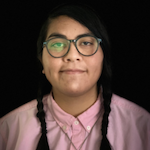The delivery of online degree programs within higher education is continuously evolving and becoming more efficient as technological and curriculum design factors merge to enhance learning effectiveness. The advance of technology challenges the modification of learning habits of future generations; the era of sitting in front of a computer to engage stale eLearning curriculum designed for the masses has run its course. The ability to take short courses via mobile technology has made eLearning-on-the-go a reality. Virtual reality will soon usher in a new learning environment in which students will attend school. In the very near future, artificial intelligence will become the teacher’s assistant and may even replace the role of an educator as we know it today! It is important to establish a presence and build sustainable businesses that attract generations of the future.
A recording of this presentation is available.
Click the button to the right to access the session archive.
We invite you to join the discussion about this session
by clicking the button on the right.

 Noel Broman, Ph.D., has worked in information systems and technologies for 25 years, with areas of expertise in network design and development, cyberscecurity, higher education instruction and curriculum development, subject matter expertise in information technology. Dr. Broman’s research interests include telecommuting, cryptography / cryptanalysis, organizational communication, IT ethics, IS security and control, online learning management and facilitation, data management, analytics, cognitive science, and educational psychology.
Noel Broman, Ph.D., has worked in information systems and technologies for 25 years, with areas of expertise in network design and development, cyberscecurity, higher education instruction and curriculum development, subject matter expertise in information technology. Dr. Broman’s research interests include telecommuting, cryptography / cryptanalysis, organizational communication, IT ethics, IS security and control, online learning management and facilitation, data management, analytics, cognitive science, and educational psychology. Glen Jenewein, PhD (ABD), MSIT, is the director of undergraduate internships for the School of Business and Information Technology at Purdue Global. In his classes, he focuses on ways to use new technology to enhance the student learning experience. Jenewein worked as a professor in the technology field for over 18 years, including as the director of distance learning at Clark College in Vancouver, Washington. Jenewein also spent 13 years in the U.S. Navy as a communications officer and was instrumental in establishing communications from the South Pole, Antarctica to Paramus, New Jersey.
Glen Jenewein, PhD (ABD), MSIT, is the director of undergraduate internships for the School of Business and Information Technology at Purdue Global. In his classes, he focuses on ways to use new technology to enhance the student learning experience. Jenewein worked as a professor in the technology field for over 18 years, including as the director of distance learning at Clark College in Vancouver, Washington. Jenewein also spent 13 years in the U.S. Navy as a communications officer and was instrumental in establishing communications from the South Pole, Antarctica to Paramus, New Jersey. Sean Doyle, Ph.D., taught at New York University in the Department of Nutrition in 2001, facilitating courses in the Culinary Science laboratory. Since then, he taught business-related courses at various institutions of higher learning and serves as an education consultant in on-ground, blended, and online learning environments. Dr. Doyle’s discipline areas of expertise include Organizational Strategy, Customer Relationship Management, Organizational Design, Service Delivery, Small Business Management, Leadership, Appreciative Inquiry, Experiential Learning, and Competency-Based Learning.
Sean Doyle, Ph.D., taught at New York University in the Department of Nutrition in 2001, facilitating courses in the Culinary Science laboratory. Since then, he taught business-related courses at various institutions of higher learning and serves as an education consultant in on-ground, blended, and online learning environments. Dr. Doyle’s discipline areas of expertise include Organizational Strategy, Customer Relationship Management, Organizational Design, Service Delivery, Small Business Management, Leadership, Appreciative Inquiry, Experiential Learning, and Competency-Based Learning. Dr. Malcolm Brown has been Director of the EDUCAUSE Learning Initiative since 2009 and has initiated major ELI undertakings such as its Seeking Evidence of Impact program and the Learning Space Rating System. Prior to assuming the ELI directorship, he was the Director of Academic Computing at Dartmouth College, overseeing a team active in instructional technology, research computing, classroom technology, and pedagogical innovation. During his tenure at Dartmouth, he worked actively with the ELI, contributing chapters to the EDUCAUSE eBooks, helping to plan focus sessions, and serving on the ELI Advisory Board. He has been a member of the EDUCAUSE Evolving Technologies committee and was the editor for the New Horizons column for the EDUCAUSE Review. Brown has served as a faculty member of the EDUCAUSE Learning Technology Leadership program. He has been on the Advisory board for the Horizon Report since its inception in 2004 and served as Chair of Board of the New Media Consortium.
Dr. Malcolm Brown has been Director of the EDUCAUSE Learning Initiative since 2009 and has initiated major ELI undertakings such as its Seeking Evidence of Impact program and the Learning Space Rating System. Prior to assuming the ELI directorship, he was the Director of Academic Computing at Dartmouth College, overseeing a team active in instructional technology, research computing, classroom technology, and pedagogical innovation. During his tenure at Dartmouth, he worked actively with the ELI, contributing chapters to the EDUCAUSE eBooks, helping to plan focus sessions, and serving on the ELI Advisory Board. He has been a member of the EDUCAUSE Evolving Technologies committee and was the editor for the New Horizons column for the EDUCAUSE Review. Brown has served as a faculty member of the EDUCAUSE Learning Technology Leadership program. He has been on the Advisory board for the Horizon Report since its inception in 2004 and served as Chair of Board of the New Media Consortium. Professor Albert Sangra, is Director for the UNESCO Chair in Education and Technology for Social Change, Professor in the Department of Psychology and Education at the Open University of Catalonia, and researcher at the Edul@b research group.
Professor Albert Sangra, is Director for the UNESCO Chair in Education and Technology for Social Change, Professor in the Department of Psychology and Education at the Open University of Catalonia, and researcher at the Edul@b research group.
 Cengiz Hakan AYDIN, Ph.D., is a full professor in Anadolu University of Turkey offering courses in the field of open and distance learning since the early 1990s: Instructional Design, Designing ODL, Trends in ODL, and Research on ODL. He has also served as an instructional designer in the Open Education System of the University and as the dean of one of the major ODL Faculty of the University between 2013-2016. His current research interests focus on the design and development of ODL environments, integration of new technologies into ODL, Open Education Resources (OER), and Massive Open Online Courses (MOOCs).
Cengiz Hakan AYDIN, Ph.D., is a full professor in Anadolu University of Turkey offering courses in the field of open and distance learning since the early 1990s: Instructional Design, Designing ODL, Trends in ODL, and Research on ODL. He has also served as an instructional designer in the Open Education System of the University and as the dean of one of the major ODL Faculty of the University between 2013-2016. His current research interests focus on the design and development of ODL environments, integration of new technologies into ODL, Open Education Resources (OER), and Massive Open Online Courses (MOOCs). Wayne Holmes, Ph.D. is the Principal Researcher (Education) at Nesta on the application of Artificial Intelligence to both enhance and further understand learning and the ethical and social implications of AI applied in educational contexts. He is the co-author of three books: Artificial Intelligence in Education. Promise and Implications for Teaching and Learning; Technology-enhanced Personalised Learning: Untangling the Evidence; and Intelligence Unleashed: An Argument for Artificial Intelligence in Education. He also advises the UK’s All-Party Parliamentary Group on AI (Education Taskforce) and UNESCO on the pedagogical, ethical and social implications of AI in education (including leading UNESCO’s ‘Policy Guidelines for AI in Education’, in preparation).
Wayne Holmes, Ph.D. is the Principal Researcher (Education) at Nesta on the application of Artificial Intelligence to both enhance and further understand learning and the ethical and social implications of AI applied in educational contexts. He is the co-author of three books: Artificial Intelligence in Education. Promise and Implications for Teaching and Learning; Technology-enhanced Personalised Learning: Untangling the Evidence; and Intelligence Unleashed: An Argument for Artificial Intelligence in Education. He also advises the UK’s All-Party Parliamentary Group on AI (Education Taskforce) and UNESCO on the pedagogical, ethical and social implications of AI in education (including leading UNESCO’s ‘Policy Guidelines for AI in Education’, in preparation). John Augeri is Director at Ile-de-France Digital University (Paris). He leads since 2016 a research project consisting of an international comparative study that already involved more than 220 spaces located on four continents. He has developed and translated several major design and assessment tools.
John Augeri is Director at Ile-de-France Digital University (Paris). He leads since 2016 a research project consisting of an international comparative study that already involved more than 220 spaces located on four continents. He has developed and translated several major design and assessment tools.
 Kūʻiʻolani Cotchay is a graduate student in the M. Ed. Learning Design and Technology program at the University of Hawaiʻi at Mānoa, where she received a BA in Hawaiian Studies. She is an alternative educator, interested in creating and fostering learning environments external to the typical classroom. Future plans include creating an online Girls Rock Camp, developing educational content for Kānaka Maoli, and obsessing more about Kānaka Color Theory.
Kūʻiʻolani Cotchay is a graduate student in the M. Ed. Learning Design and Technology program at the University of Hawaiʻi at Mānoa, where she received a BA in Hawaiian Studies. She is an alternative educator, interested in creating and fostering learning environments external to the typical classroom. Future plans include creating an online Girls Rock Camp, developing educational content for Kānaka Maoli, and obsessing more about Kānaka Color Theory. Sarah Nakashima regularly looks for strange articles revolving around animals and cults. As a Humanities Librarian at Hamilton Library at the University of Hawaiʻi at Mānoa (UHM), she uses the found information to engage undergraduate students in the research process. Her excitement for student engagement and her desire to broaden the library’s reach motivated her to pursue online learning. Currently, Sarah is finishing as a Master’s candidate in the UHM College of Education, Learning Design and Technology department. Her research focused on incorporating online learning strategies into current library instructional roles.
Sarah Nakashima regularly looks for strange articles revolving around animals and cults. As a Humanities Librarian at Hamilton Library at the University of Hawaiʻi at Mānoa (UHM), she uses the found information to engage undergraduate students in the research process. Her excitement for student engagement and her desire to broaden the library’s reach motivated her to pursue online learning. Currently, Sarah is finishing as a Master’s candidate in the UHM College of Education, Learning Design and Technology department. Her research focused on incorporating online learning strategies into current library instructional roles.